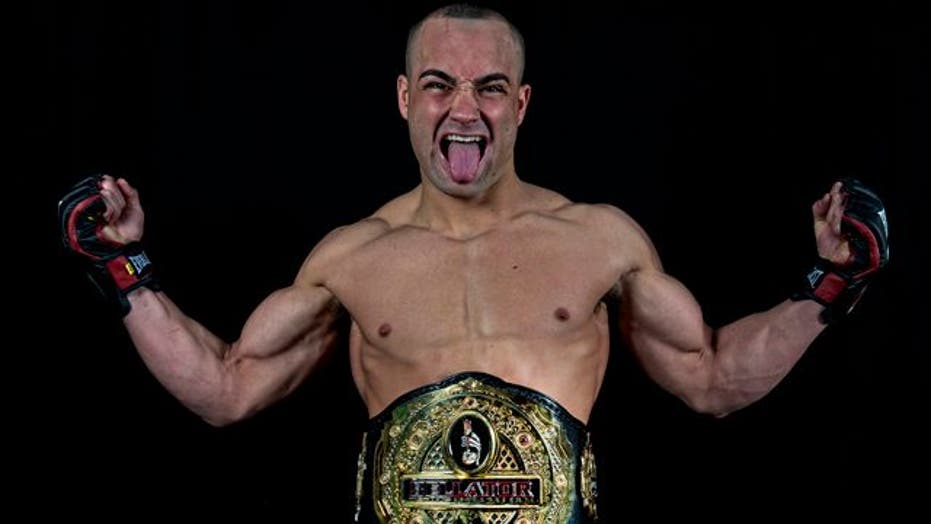In the world of Mixed Martial Arts (MMA), the Ultimate Fighting Championship (UFC) is king, and has set the business standard for all other promotions.
But one relatively new organization is establishing itself in the fighting game – and they’re doing it with Latino fighters and by catering to Latino fans.
When you watch Bellator Fighting Championships on television, you get the sense that it has a different feel than some other promotions.
The production value is pretty high, and the fighters are hungry, the energy in the ring is noticeable. CEO Bjorn Rebney attributes this to, among other things, the mentality of the fighters and the importance of Latinos.
“It’s that mano-a-mano, warrior-against-warrior mentality. No sport in the history of man has exemplified that mentality better than MMA,” said Rebney. “[Latino fighters] and the Hispanic market are also important to this company.”
Bellator, which is Latin for warrior, has tried to distance itself from other promotions.
Competition is the key difference. It uses a tournament format that keeps the big money payoff ($100,000 dollars to the tournament winner) and championships out of the hands of the matchmakers and into the fists of the fighter.
“When you give guys the chance to compete in a tournament...you have a dynamic in place where you win and move on or you lose and go home,” said Rebney. “You’re going to get those incredible moments.”
One of the main strategy points that Bellator has tried to do from Day One is to capture the attention and loyalty of the Latino fan base.
“We have consistently had a tremendous focus on Latino fight fans throughout this country and throughout the world,” said Rebney.
In the past Bellator had deals with ESPN Deportes & Telemundo. This past season (their fourth on television) they signed a deal to broadcast their fights on MTV2 and in Español on MTV Tr3s, where they reach 6.3 million Hispanic households.
“We’re going to keep pushing that because some of the greatest fight fans in the world are Hispanic consumers,” said Rebney.
According to Bellator, 20 percent of their fighters are Latino. Of those fighters, one of the most prominent is Héctor Lombard, the promotions middleweight champion, a Cuban immigrant. Their lightweight champion, Eddie Alvarez, is of Puerto Rican descent.
Bellator understands that Latino heroes are important to tapping into the Latino market.
“I think it's incumbent upon any organization, mixed martial arts company… to try to foster, to try to build those superstars that are really attractive that are going to draw in [Latino fans].”
Recent shifts in the MMA company landscape have essentially made Bellator Fighting Championships the de-facto No. 2 promotion in MMA. UFC’s parent company Zuffa recently purchased Strikeforce.
“We’re two years old. We’re going to keep getting better,” said Rebney. “But there’s a long way to go and we have an awful lot to [work on] to get bigger, stronger, and more exciting.”
Bellator isn't resting on its Latino laurels, either.
“We’re constantly looking in South and Central America and Mexico for the next guy,” said Rebney. “[Latinos] are an important part of the company. It’s part of who we are.”
Bellator Fighting Championships is on MTV2 Saturdays at 9 p.m. ET. It also airs on MTV Tr3s Sunday at 10 p.m. ET.
The Bellator Summer Series Featherweight Tournament begins June 25.
Victor García is an associate producer for Fox News Channel and a regular contributor to FoxNewsLatino.com.
Follow us on twitter.com/foxnewslatino
Like us at facebook.com/foxnewslatino









































